Drs. Benjamin Levy, Shirish M Gadgeel, and Isabel Preeshagul discussed the news from IASLC’s Targeted Therapies of Lung Cancer meeting.
Watch the recording below. Register for our next livestream event.
Drs. Benjamin Levy, Shirish M Gadgeel, and Isabel Preeshagul discussed the news from IASLC’s Targeted Therapies of Lung Cancer meeting.
Watch the recording below. Register for our next livestream event.
The research you fund through LCRF is making meaningful progress in the fight against lung cancer. We are pleased to share our 2023 grantees’ one-year updates in this series.
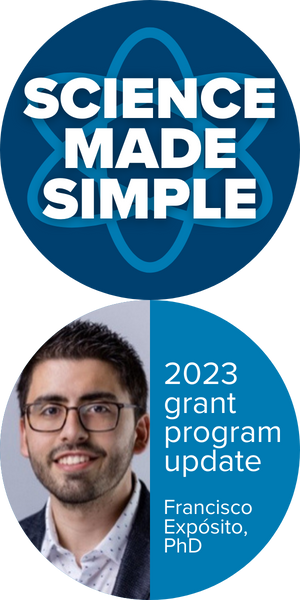
Yale University
2023 LCRF Leading Edge Research Grant Program
What he’s doing:
Dr. Expósito is investigating a promising new approach to treating EGFR-driven lung cancer by studying the role of SETD2, a gene that normally helps suppress cancer formation. When SETD2 is lost, cancer growth can accelerate, particularly in EGFR+ lung adenocarcinoma.
How it’s going:
To better understand this process, Dr. Expósito has developed advanced genetic models that allow researchers to deactivate and restore SETD2 in cancer cells. His team is now preparing to study SETD2 in human tumor samples, which could provide critical insights into how manipulating this gene may create new therapeutic opportunities. His team is now preparing to study SETD2 in human tumor samples, which could provide critical insights into how manipulating this gene may create new therapeutic opportunities.
What it could mean for patients:
If successful, this research could lead to innovative strategies for targeting EGFR-mutated lung cancer, offering new hope for patients in need of better treatment options.
febrero 2025
Two years ago, 38-year old Lauren was celebrating her first year as a mom. Ready to step up her fitness, she decided to start training for a half marathon.

It wasn’t long before she noticed a tweaked muscle in her neck. An X-ray showed something speculated to be a past injury. Lauren didn’t think that sounded right, so she asked for another X-ray.
That X-ray highlighted a mass in her lung that later testing showed was stage 3 lung cancer.
“In the course of 24 hours I went from perfect bloodwork, feeling like I was in the best shape I’ve been in since the baby to a CT scan to figure out what it was,” she remembers.
“It was exceptionally overwhelming,” she said. “The devastation around that time of not knowing. I remember saying ‘am I going to make it to (my daughter Elle’s) second birthday?’”
Because she hoped to have another child, Lauren underwent fertility preservation before chemotherapy and radiation to shrink the tumors for surgical removal. Half her left lung was removed after a month of recovery.
“I knew I would fight so that I could stay here for Elle. She gave me the motivation to get up and get infusions when I was feeling my worst. I held a picture of her for every scan. I couldn’t bear the thought of taking that smile from her face.”
Lauren learned she had an EGFR mutation, which often shows up in nonsmoking patients in their 30s and 40s.
Her one-year scan showed no evidence of cancer; however, she will continue regular scans to make sure she doesn’t have a recurrence.
She is grateful for her supporters, including those she’s never met. “Your support literally saves lives by fueling the best and most innovative cancer research in the world – helping people like me have more treatment options and better outcomes. I’m hopeful that together, we can make sure new treatments continue to emerge.”
> Learn about biomarker testing for EGFR and other genetic mutations
> Find a patient support group
> Donate to fund lung cancer research
NEW YORK, NY (febrero 18, 2025) – The Lung Cancer Research Foundation (LCRF) is pleased to announce its partnership with Israel Cancer Research Fund (ICRF) on a project led by Joel Yisraeli, PhD, and his lab in the Department of Developmental Biology and Cancer Research at the Hebrew University of Jerusalem. The ICRF-LCRF Project Grant is a three-year, $180,000 award.
The project, titled “Treating Lung and Colorectal Carcinomas by Targeting IGFBP1” will study the effects of an IGF2BP1 inhibitor discovered by Professor Yisraeli and his team, building upon previous ICRF-funded research.
IGF2BP1 is a protein that binds to RNA and is usually active before birth, but it becomes active again in many types of cancers. In patients with lung adenocarcinoma, those with high levels of IGF2BP1 and a mutated KRAS gene have a much lower survival rate (15 months) compared to those without high levels of IGF2BP1 (88 months). In mice, when IGF2BP1 is active along with the mutant KRAS gene, it helps tumors grow in the lungs and spread to other parts of the body. However, blocking IGF2BP1 can prevent these tumors from spreading.
Prof. Yisraeli’s lab discovered and refined a molecule called “AVJ16,” which prevents IGF2BP1 from attaching to KRAS and other cancer-promoting RNAs. In mouse models, this drug stops cancer cells from growing when injected under the skin. This project will allow Prof. Yisraeli and his team to test AVJ16 in a genetic mouse model of lung cancer, explore its potential as an additional therapy, and develop a small molecule that targets and degrades IGF2BP1. Their ultimate goal is to create a set of powerful new therapies that specifically inhibit IGF2BP1 and prevent cancer development. They hope these animal studies will be the first step toward a clinical trial.
KRAS is the most common mutation in non-small cell lung cancer patients, making up about 25% of all lung cancers. The KRAS gene serves as a signaling pathway for cell growth, and when there is a mutation in the KRAS gene, it causes excess signaling, leading to excess cell growth and cancer. Roughly half of patients with KRAS-mutated lung cancer have a KRAS G12C mutation,1 for which there are targeted drug therapies following progression after first-line treatment. However, because these agents are not curative nor active in other KRAS mutations, additional research is urgently needed.
Professor Yisraeli has received previous grant funding from ICRF over the years, including when he initially set up his lab at the Faculty of Medicine at Hebrew University after returning from a post-doctoral fellowship in developmental biology at Harvard. This support has enabled new discoveries and paved the way for his current lung cancer research.
“LCRF is delighted to partner with ICRF on this research project,” says Antoinette Wozniak, MD, LCRF Chief Scientific Officer. “In a notoriously difficult cancer to treat, this project explores a promising new target for KRAS-mutated lung cancer, which is an exciting development.”
I’m grateful for this powerful partnership between ICRF and LCRF,” says Arnold Baskies, MD, FACS, Chair of ICRF’s Board of Trustees. “Our collaboration amplifies our shared vision to advance lung cancer treatment while leveraging Israel’s innovations in the fight against cancer.”
To learn more about LCRF and its grants program, visit LCRF.org. To learn more about ICRF and its research program, visit icrfonline.org.
[1] KRAS and Lung Cancer, American Lung Association
###
About the Lung Cancer Research Foundation (LCRF)
The Lung Cancer Research Foundation® (LCRF) is the leading nonprofit organization focused on funding innovative, high-reward research with the potential to extend survival and improve quality of life for people with lung cancer. LCRF’s mission is to improve lung cancer outcomes by funding research for the prevention, diagnosis, treatment, and cure of lung cancer. To date, LCRF has funded 428 research grants, totaling nearly $48 million, the highest amount provided by a nonprofit organization dedicated to funding lung cancer research. For more information, visit LCRF.org.
Contact:
Sheila Sullivan
Sr. Director, Marketing & Communications, LCRF
ssullivan@lcrf.org
About Israel Cancer Research Fund (ICRF)
Israel Cancer Research Fund (ICRF) is the largest nongovernmental funder of cancer research in Israel. For 50 years, with nearly 3,000 grants totaling more than $98 million, ICRF has enabled the best and brightest scientists to conduct groundbreaking research for all types of cancer across Israel’s leading institutions. Our goal is to end the suffering caused by cancer and ensure that Israel remains a global leader in science and a beacon of hope for the world. The answer to cancer is research! Learn more at icrfonline.org.
Contact:
Gayle Peck
Director of Communications, ICRF
gayle.peck@icrfonline.org
About the Hebrew University of Jerusalem
This year marks 100 years of excellence in research, education, and innovation at the Hebrew University of Jerusalem, Israel’s premier institution of higher learning and research. The University is dedicated to advancing knowledge, fostering leadership, and promoting diversity, serving over 23,000 students from over 80 countries. As home to founder Albert Einstein’s archives, the University produces nearly 40% of Israel’s civilian scientific research and has received over 11,000 patents. Faculty and alumni of the Hebrew University have won eight Nobel Prizes and a Fields Medal, and continue to shape the future. For more information about Hebrew University’s academic programs, research, and achievements, please visit http://new.huji.ac.il/en.
Contact:
Danae Marks-Callaf
Director of International Communications
danaemc@savion.huji.ac.il
Our science team talks about what research developments they’re excited to see this coming year. Watch the video below.
Featured:
Aubrey Rhodes, LCRF Executive Director
Dhru Deb, PhD, Senior Director, Research & Administration
Antoinette (Toni) Wozniak, MD, Chief Scientific Officer
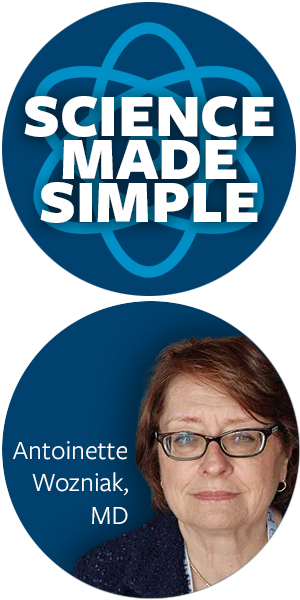
The U.S. Food and Drug Administration (FDA) has granted accelerated approval to zenocutuzumab-zbco for the treatment of adult patients with advanced, unresectable, or metastatic non-small cell lung cancer (NSCLC) or pancreatic adenocarcinoma that harbors a gene fusion involving neuregulin 1 (NRG1). The drug is approved for use following disease progression during or after prior systemic therapy.
NRG1 is important in the development of the neurologic system and other biologic processes. Fusions or rearrangements of the NRG1 gene are rare and can occur in 0.2% of NSCLC and in other types of cancer. The NRG1 proteins bind to HER3 promoting cancer development. Patients who have this abnormality in their tumor do not do as well with standard treatment.
Zenocutuzumab is a bispecific antibody (binds to 2 targets) that blocks the interaction between NRG1 and both HER2 and HER3. The drug was evaluated in the eNRGy study which was a “basket” trial of patients with previously treated cancer. A trial of this type means that it is open to patients with any kind of cancer as long as they have the gene alteration – in this case, an NRG1 fusion. Of the 64 patients with NRG1 fusion NSCLC in the study, 33% had a significant reduction in their cancer from zenocutuzumab treatment that lasted a median of 7.4 months. Side effects were very manageable and included muscle pain, gastrointestinal symptoms (diarrhea, nausea, vomiting, constipation), rash, infusion reactions, and laboratory abnormalities.
NRG1 fusions represent another abnormality in the cancer cell that can be treated with targeted therapy. Because of its rarity, it is important that patients have molecular/genetic testing done on their cancer to determine if an NRG1 fusion is present. The drug was also approved for patients with pancreatic cancer who have an NRG1 fusion because of the benefit that was demonstrated on the trial.
There will likely be more trials evaluating zenocutuzumab, possibly in combination with other treatments and as initial therapy for patients with advanced NSCLC who have NRG1 fusions. Expect that the search for additional targets for treatment and subsequent development of novel drugs will continue.
NEW YORK, NY (enero 7, 2025) – The Lung Cancer Research Foundation (LCRF) announced today that its 2025 funding opportunities are officially open for applications.
LCRF’s four primary funding mechanisms are designed to advance its mission of supporting researchers committed to addressing critical challenges in lung cancer. These include improving early detection, deepening understanding of lung cancer biology, exploring mechanisms of drug resistance and strategies to overcome it, and developing innovative treatment approaches. Additionally, the foundation is dedicated to reducing inequities in the careers of investigators from underrepresented groups in cancer research.
“We’re always thrilled to announce LCRF’s Requests for Proposals,” said Kathryn O’Donnell, PhD, Chair of LCRF’s Scientific Advisory Board, Associate Professor, Molecular Biology at UT Southwestern Medical Center. “Every year, we fund groundbreaking ideas that seek cutting-edge solutions to the complexities of lung cancer, address treatment resistance, and enhance diversity in our research community. The Scientific Advisory Board eagerly anticipates the innovative applications this process will bring.”
Colleen Conner Ziegler, lung cancer survivor and LCRF board chair, echoed this sentiment. “The proposals we receive each year from these outstanding investigators are truly inspiring,” she said. “Each grant cycle brings new hope for breakthroughs that can make a real difference for patients.”
The LCRF Leading Edge Research Grant, seeks to fund innovative projects across the full spectrum of basic, translational, clinical, epidemiological, health services, disparities, and social determinants of health research. This funding mechanism seeks novel ideas, approaches, methods, and techniques that promise to have a profound impact on lung cancer patients and their treatment teams.
LCRF’s Research Grant on Prevention and Early Detection in Lung Cancer is focused on identifying, characterizing, and developing approaches and techniques that will allow early detection and/or prevention of lung cancer and gaining insight into pre-neoplastic processes in the lungs. The ultimate goal is to detect lung cancer at the earliest stages and subsequently increase survival and survivorship.
The LCRF Research Grant on Overcoming Resistance in Lung Cancer will focus on overcoming resistance and support research projects with an emphasis on characterizing, identifying, treating, overcoming, or preventing resistance to therapies in lung tumor cells, tissues, mouse models, or patients. This mechanism will address important mechanistic questions and developmental therapeutics across the care continuum and have the potential to increase survivorship.
LCRF’s Minority Career Development Award (CDA) for Lung Cancer is a two-year career development award intended to support early-stage scientists from underrepresented groups working in lung cancer and working in diverse areas of research including basic, clinical, translational, disparities, and social determinants of health research. The objective of this award is to increase the number of highly skilled and trained researchers from groups that are historically underrepresented in academia, medicine, and leadership in lung cancer research. This program aims to close the gap between the mortality rates and representation in lung cancer research by funding minority researchers.
Each of these funding mechanisms will award $150,000 over two years for selected projects, and all mechanisms will be reviewed through a two-step process: Letters of Intent will be accepted until midnight on marzo 3, 2025; if selected, investigators will then be chosen to submit full proposals following a rigorous scientific review. More details about each of the Requests for Proposal, along with eligibility, requirements, and deadlines can be found at LCRF.org/funding.
###
About the Lung Cancer Research Foundation
The Lung Cancer Research Foundation® (LCRF) is the leading nonprofit organization focused on funding innovative, high-reward research with the potential to extend survival and improve quality of life for people with lung cancer. LCRF’s mission is to improve lung cancer outcomes by funding research for the prevention, diagnosis, treatment, and cure of lung cancer. To date, LCRF has funded 428 research grants, totaling nearly $48 million, the highest amount provided by a nonprofit organization dedicated to funding lung cancer research. For more information about the LCRF grant program and funding opportunities, visit LCRF.org/research.
Contact:
Sheila Sullivan
Sr. Director, Marketing and Communications
ssullivan@LCRF.org
New York, NY (enero 7, 2025) – Today, the Lung Cancer Research Foundation, in collaboration with Bayer Pharmaceuticals, announced submissions are being accepted for the $500,000, two-year award, titled LCRF|Bayer Research Award on Innovative Therapeutic Strategies to Treat Lung Cancers Harboring HER2 Mutations and/or Other HER2 Alterations.
Current immunotherapeutic strategies have shown limited success in treating lung cancers driven by EGFR or HER2 mutations, highlighting the urgent need for a deeper understanding of tumor response and resistance mechanisms. Furthermore, as existing therapeutic options for HER2-mutant lung cancers are not curative, innovative approaches are critical. This new grant initiative will focus on the role of HER2 alterations as oncogenic drivers and the development of novel therapeutic strategies to treat patients with HER2-mutant and HER2-altered tumors.
Projects supported by this award will address key mechanistic questions and therapeutic advancements across the care continuum, with the ultimate goal of improving patient outcomes and survivorship. Researchers are encouraged to integrate or plan clinical trials within their proposals to accelerate the translation of findings into impactful treatments. Additionally, projects should include correlative, translational research to advance understanding of HER2-driven lung cancers and must include a patient/patient advocate as a member of the research team and have a role in the project design.
“Expanding treatment options for patients affected by HER2 mutations and alterations is vital,” said Dr. Antoinette Wozniak, Chief Scientific Officer at LCRF. “Through this award, we hope to support research that drives near-term breakthroughs with tangible benefits for patients.”
Submissions to the Request for Proposals will be reviewed through a two-step process: Letters of Intent will be accepted until midnight on marzo 3, 2025; if selected, projects will then be chosen to submit full proposals. All applications will be subject to a rigorous review by LCRF’s Scientific Advisory Board. More details about the Request for Proposal, along with eligibility, requirements, and deadlines can be found at LCRF.org/FundingOpportunities.
###
About the Lung Cancer Research Foundation
The Lung Cancer Research Foundation® (LCRF) is the leading nonprofit organization focused on funding innovative, high-reward research with the potential to extend survival and improve quality of life for people with lung cancer. LCRF’s mission is to improve lung cancer outcomes by funding research for the prevention, diagnosis, treatment, and cure of lung cancer. To date, LCRF has funded 428 research grants, totaling nearly $48 million, the highest amount provided by a nonprofit organization dedicated to funding lung cancer research. For more information about the LCRF grant program and funding opportunities, visit LCRF.org/research.
Contact:
Sheila Sullivan
Sr. Director, Marketing and Communications
ssullivan@LCRF.org
FOR IMMEDIATE RELEASE
NEW YORK, diciembre 10, 2024
The Lung Cancer Research Foundation® (LCRF) is pleased to announce its 2024 Scientific Grant Program awards, funding $3.55 million in new research, the largest single-year investment in its history. This year’s grant cycle includes awards in the following areas: LCRF Leading-Edge Grant in Lung Cancer, LCRF Research Grant on Early Detection and Pre-Neoplasia in Lung Cancer, LCRF Research Grants on Understanding Resistance in Lung Cancer, LCRF Minority Career Development Award (CDA) for Lung Cancer, and the IASLC-LCRF Team Science Research Grant on the Next Step in the Cure of Oncogene-Driven Lung Cancers. Earlier this year, LCRF awarded the American Lung Cancer Screening Initiative (ALCSI), led by Chi-Fu Jeffrey Yang, MD, of Massachusetts General Hospital, a $320,000 grant to conduct its “Plus One” screening initiative and research study.
LCRF awarded its grants for projects that demonstrate profound promise to make a sustained and lasting impact on lung cancer research and outcomes. These grants are made possible by Research ALK+ve Lung Cancer UK, the LRE Foundation, and numerous generous donations from LCRF’s supporters.
“Each year, our Scientific Advisory Board and Research Advocates review hundreds of submissions,” said Colleen Conner Ziegler, Chair of LCRF’s Board of Directors. “This ensures that LCRF is funding projects that will have the greatest impact on the lung cancer community and improve patient outcomes, both in the short and long term.”
“Because research is LCRF’s True North, we are committed to supporting science that seeks solutions to lung cancer’s most challenging issues and unmet needs,” said Kathryn O’Donnell, PhD, chair of LCRF’s Scientific Advisory Board and Associate Professor, Molecular Biology, UT Southwestern Medical Center. “Funding the most innovative research will ultimately lead to improved outcomes for patients with lung cancer.”
Through its Leading Edge Research Grant in Lung Cancer, LCRF funds innovative research focused on the prevention, diagnosis, treatment, and cure of lung cancer. This year, LCRF will be funding two projects through this mechanism.
LCRF’s Research Grant on Early Detection and Pre-Neoplasia in Lung Cancer is presented to an investigator whose project facilitates or advances the understanding and characterization of pre-neoplasia or approaches for early detection in non-small cell and small cell lung cancer.
The LCRF Research Grants on Understanding Resistance in Lung Cancer are presented to two recipients whose projects focus on combatting therapeutic resistance.
LCRF’s Minority Career Development Award for Lung Cancer, a two-year award to support early-stage scientists from underrepresented groups, is supported in part by a grant from the LRE Foundation. This year, LCRF will fund two projects in this area that will increase the representation of investigators from underrepresented groups in the lung cancer research workforce.
In partnership with the International Association for the Study of Lung Cancer (IASLC), the IASLC-LCRF Team Science Research Grant on the Next Step in the Cure of Oncogene-Driven Lung Cancers award, is a $2.5 million award over four years granted to a team of scientists whose coordinated projects advance research in oncogene-driven lung cancer with the intent to culminate in a clinical trial.
Each year, LCRF recognizes exemplary projects through its James B. Dougherty, MD Award for Scientific Merit, and William C. Rippe Award for Distinguished Research in Lung Cancer, in honor of the contributions to LCRF made by these esteemed former board members. This year, LCRF added the Cynthia M. Page Merit Award in memory of Ms. Page, whose family established the LRE Foundation and funded the grant awarded in her honor.
The James B. Dougherty, MD Award for Scientific Merit is presented to the investigator whose proposal was selected for outstanding overall merit by the Foundation’s Scientific Advisory Board. This year’s recipient is Dian Yang, PhD of Columbia University Irving Medical Center, whose project is titled “Investigating the molecular basis of cancer plasticity in LKB1-mutant lung adenocarcinoma.”
“This LCRF Leading Edge Research Grant will enable my lab to investigate the molecular mechanisms driving cancer plasticity in Lkb1-mutant lung adenocarcinoma, shedding light on potential strategies for developing innovative treatments,” remarked Dr. Yang.
LCRF’s William C. Rippe Award for Distinguished Research in Lung Cancer is presented to the investigator whose proposal not only demonstrated exceptional scientific merit but also exemplified an enduring commitment to making an impact in the field of lung cancer research. This year’s recipient is Lindsay LaFave, PhD of Albert Einstein College of Medicine, whose project is titled “Investigating chromatin-mediated mechanisms of immune response in lung cancer.”
“I am honored to receive the William C. Rippe Award for Distinguished Research in Lung Cancer from the Lung Cancer Research Foundation,” said Dr. LaFave. “Thanks to the support from LCRF we hope to better understand differences in immunity in individuals with and without a smoking history to improve immunotherapy outcomes in lung cancer.”
The Cynthia M. Page Merit Award for Innovation in Lung Cancer Research is awarded to the investigator whose proposal demonstrates exceptional scientific merit and groundbreaking innovation, pushing the boundaries of lung cancer research with creative, forward-thinking approaches. Tikvah Hayes, PhD, of the David Geffen School of Medicine at UCLA is the recipient of this award. Dr. Hayes’s project is titled “Advancing preclinical cell line diversity and decoding TKI-resistance landscapes in EGFR-mutant lung cancer.”
“Thank you to LCRF and the LRE Foundation for this meritorious award,” remarked Dr. Hayes. “I’m hopeful that we will develop innovative models and tools to assess the underlying biology of EGFR-mutant lung cancers.”
The IASLC – LCRF Team Science Research Grant on the Next Step in the Cure of Oncogene-Driven Lung Cancers, announced last month, was awarded to a global team led by David A. Barbie, MD, Director of the Lowe Center for Thoracic Oncology at Dana-Farber Cancer Institute, along with Aaron Hata, MD, PhD of Massachusetts General Hospital; Eric Smith, MD, PhD of Dana-Farber Cancer Institute; Pasi Jänne, MD, PhD of Dana-Farber Cancer Institute; and Shunsuke Kitajima, PhD representing the Japanese Foundation for Cancer Research. Their project is titled, “Immune elimination of drug tolerant persister cells in oncogene-driven lung cancer.”
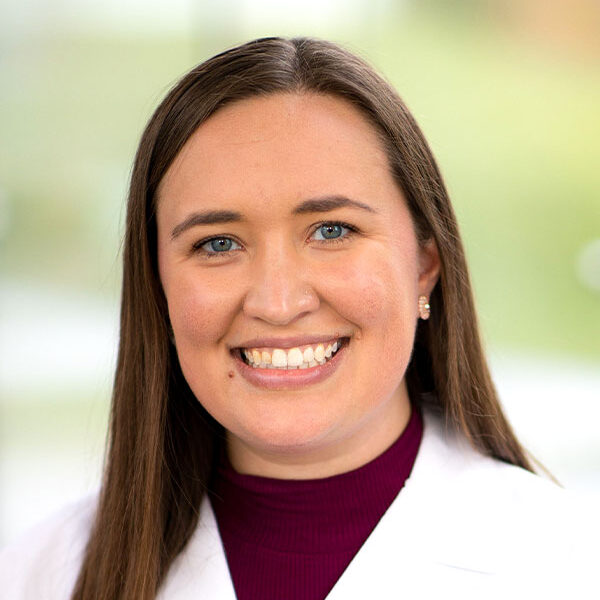
Lindsay LaFave, PhD, Albert Einstein College of Medicine
William C. Rippe Award for Distinguished Research in Lung Cancer recipient
Investigating chromatin-mediated mechanisms of immune response in lung cancer
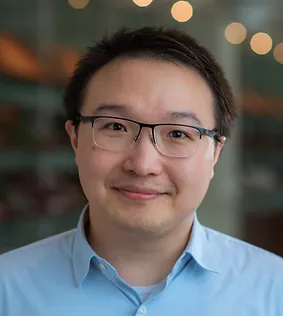
Dian Yang, PhD, Columbia University Irving Medical Center
James B. Dougherty, MD Award for Scientific Merit recipient
Investigating the molecular basis of cancer plasticity in LKB1-mutant lung adenocarcinoma
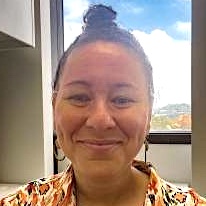
Tikvah Hayes, PhD, David Geffen School of Medicine at UCLA
Cynthia M. Page Merit Award for Innovation in Lung Cancer recipient
Advancing preclinical cell line diversity and decoding TKI-resistance landscapes in EGFR-mutant lung cancer
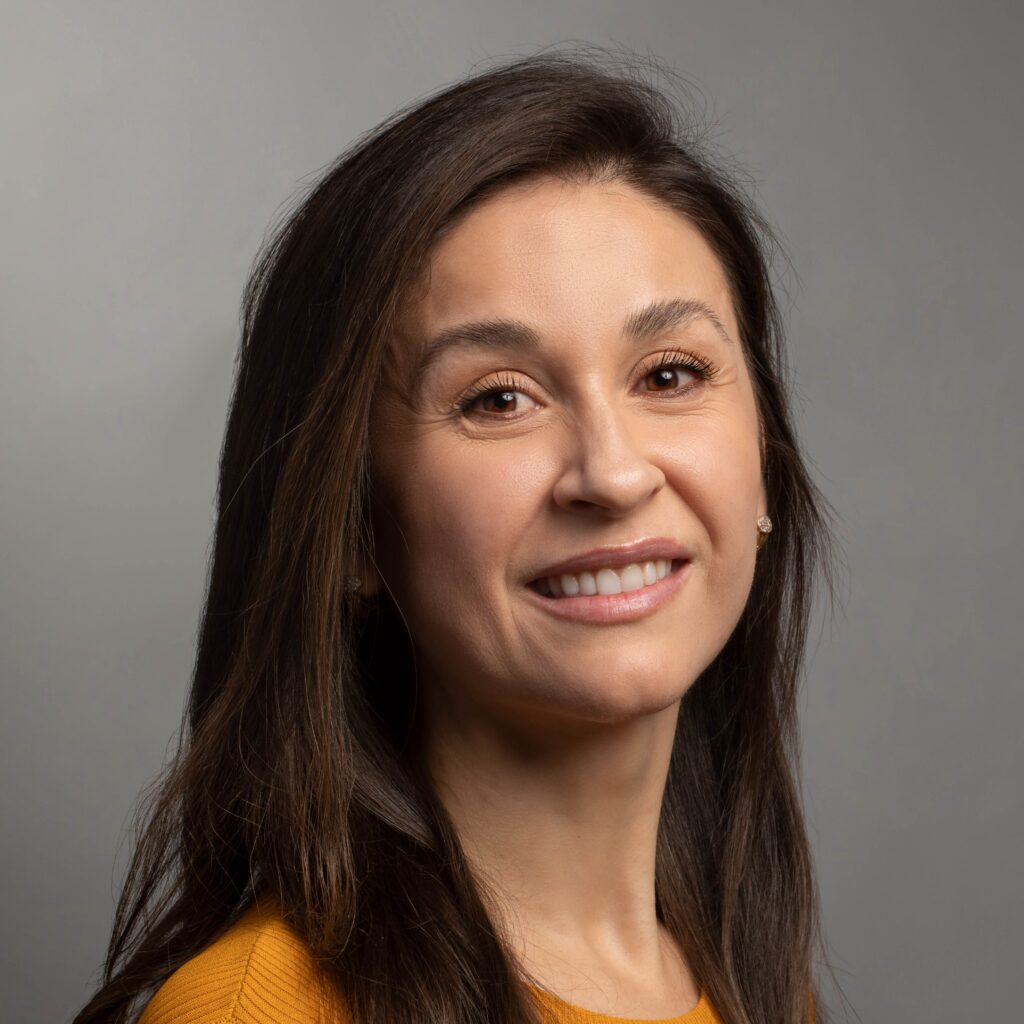
Luisa Escobar-Hoyos, MSc, PhD, Yale University
Altered RNA splicing as a driver of Osimertinib resistance in lung cancer

Peggy Hsu, MD, PhD, University of Michigan
Understanding the origin of ALK-driven lung cancer
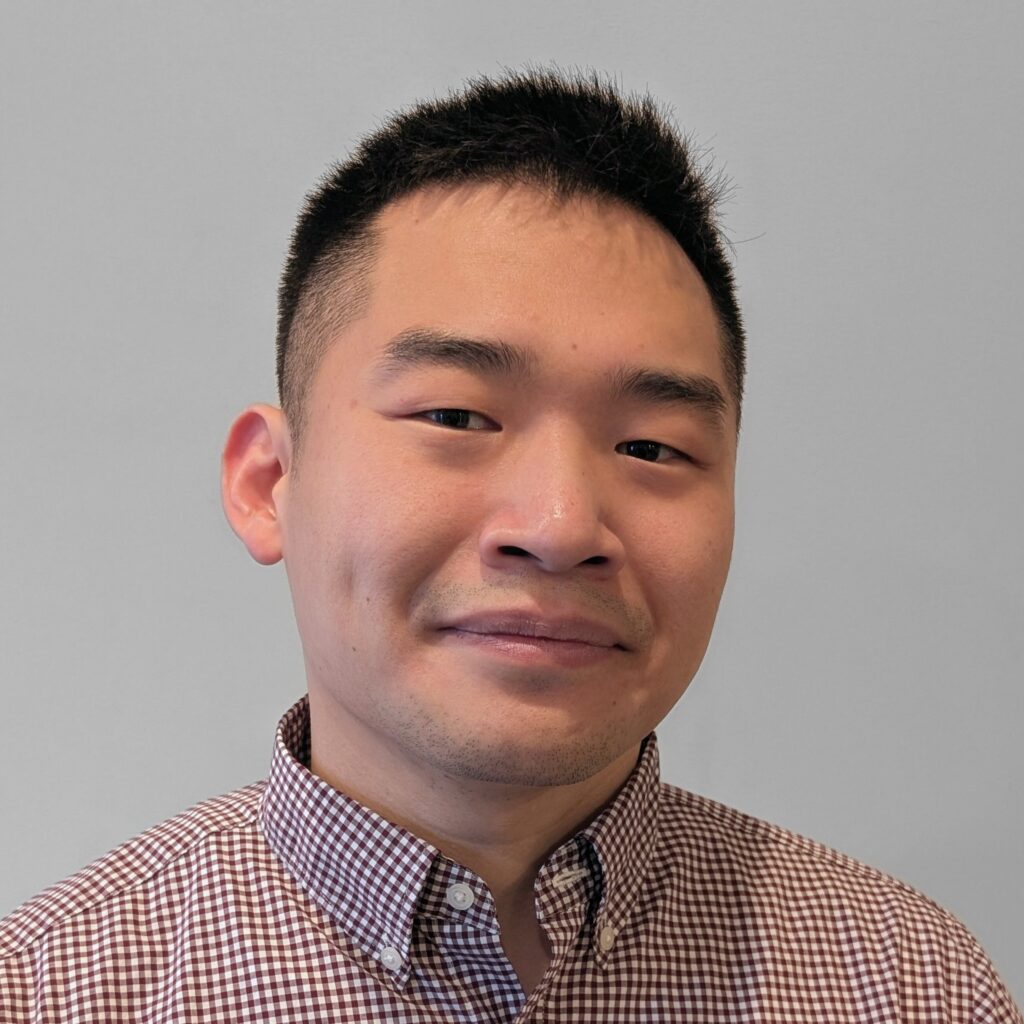
William Feng, PhD, Dana-Farber Cancer Institute
Targeting AP-1 in KRAS-mutant lung cancer

Megan Burger, PhD, Oregon Health & Science University
Optimizing immunotherapy sequencing to overcome resistance
David A. Barbie, MD, Dana-Farber Cancer Institute
Aaron Hata, MD, PhD, Massachusetts General Hospital – Harvard Medical School
Pasi Jänne, MD, PhD, Dana-Farber Cancer Institute – Harvard University
Shunsuke Kitajima, PhD, the Japanese Foundation for Cancer Research
Eric Smith, MD, PhD, Dana-Farber Cancer Institute – Harvard University
Immune elimination of drug tolerant persister cells in oncogene-driven lung cancer
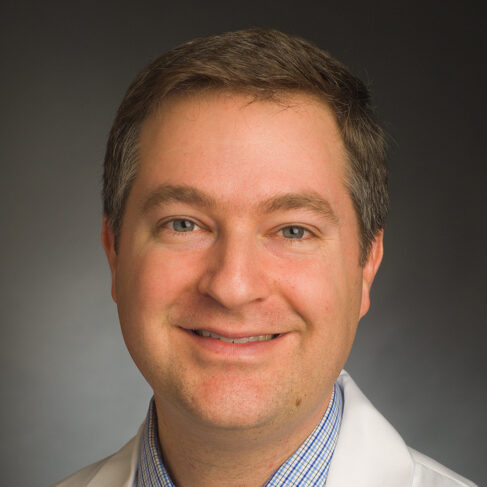
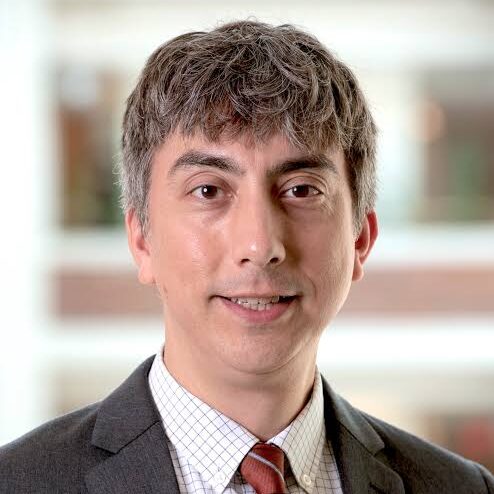
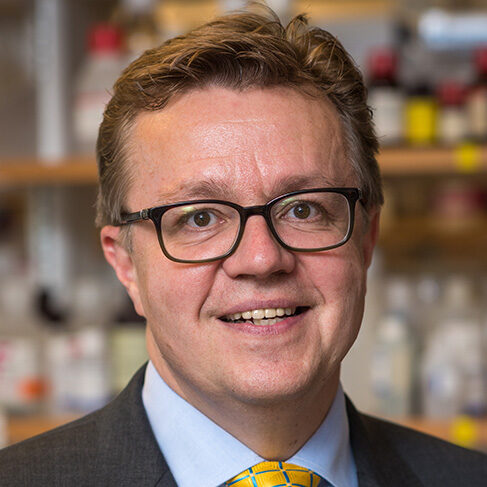

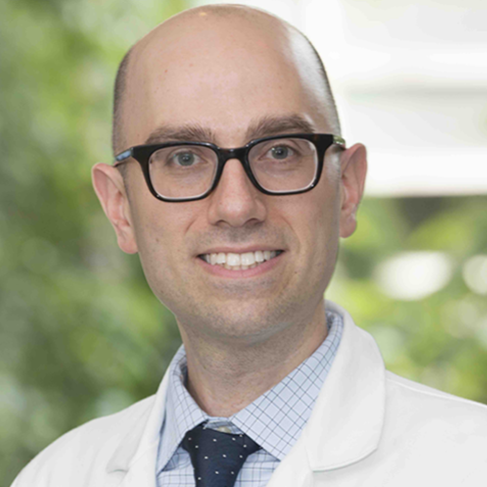
For more information about LCRF and the Scientific Grant Program, visit LCRF.org/research.
###
About the Lung Cancer Research Foundation
The Lung Cancer Research Foundation® (LCRF) is the leading nonprofit organization focused on funding innovative, high-reward research with the potential to extend survival and improve quality of life for people with lung cancer. LCRF’s mission is to improve lung cancer outcomes by funding research for the prevention, diagnosis, treatment, and cure of lung cancer. To date, LCRF has funded 428 research grants, totaling nearly $48 million, the highest amount provided by a nonprofit organization dedicated to funding lung cancer research. For more information about the LCRF grant program and funding opportunities, visit LCRF.org/research.
Contact:
Sheila Sullivan
Sr. Director, Marketing and Communications
ssullivan@lcrf.org